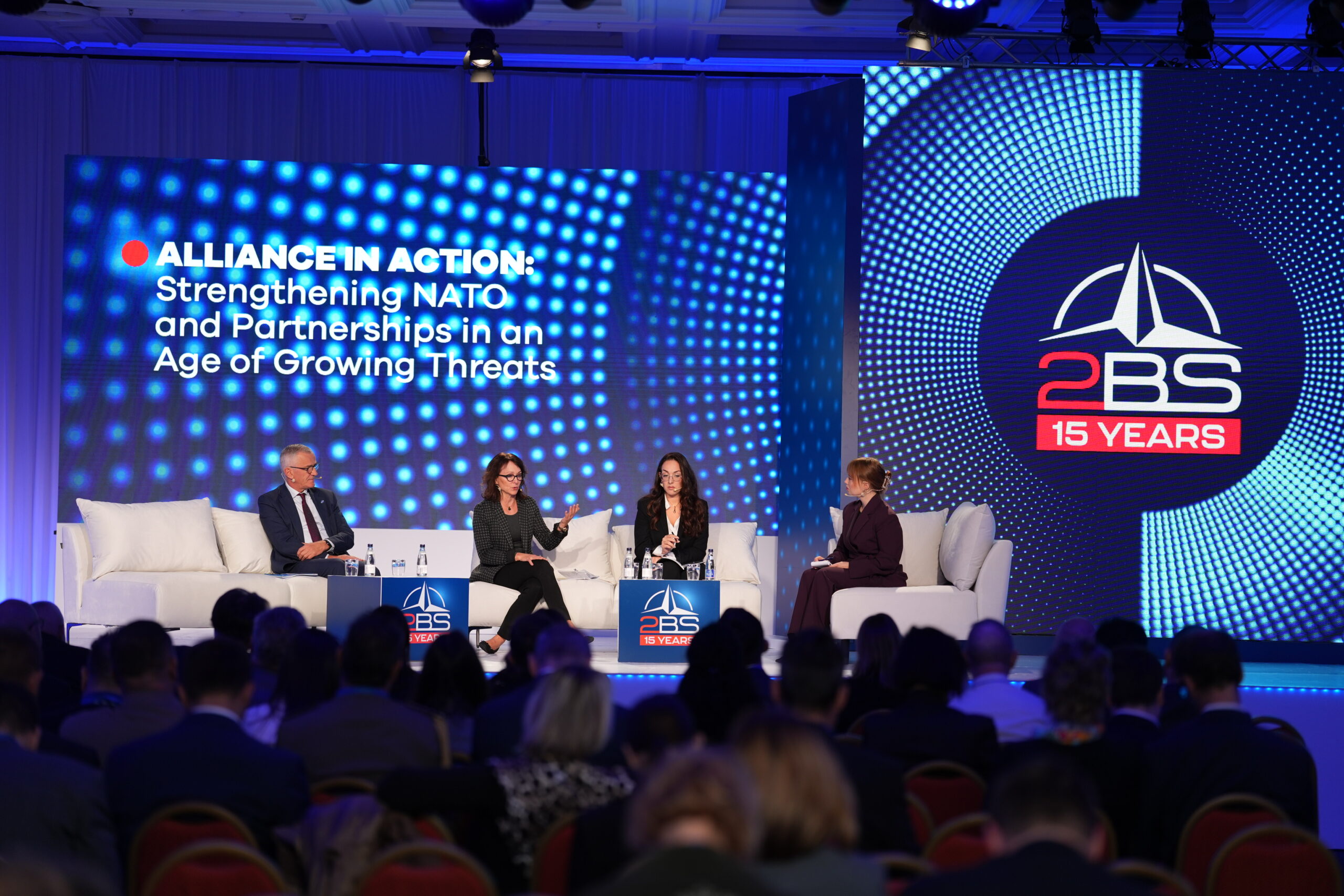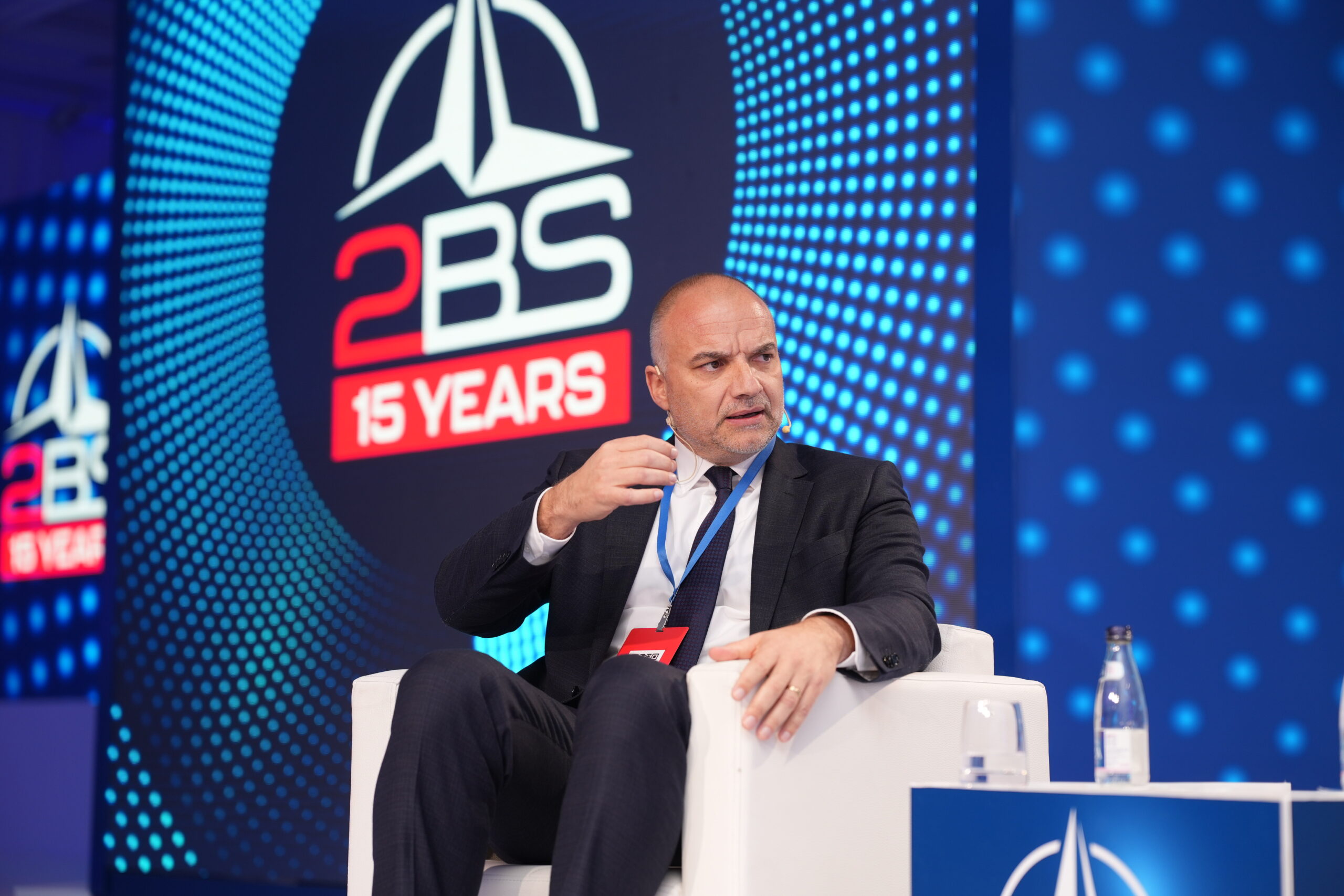Daniel Markić, Director of the European Union Intelligence and Situation Centre (EU INTCEN), said that the most immediate security risk in Europe is Russian aggression against Ukraine and hybrid activities against Europe. He said also that the concepts “Russian world” and “Serbian world” are not peace concepts and do not send a good message to the population.
At a panel within the 2BS Forum titled “Quiet defence of Europe in an era of transformation,” he stated that these activities are only increasing and despite all challenges, he thinks this is the main one. Since the EU is a global actor that means it treats global challenges and the most important thing is to protect the European continent, Markić said. When asked if the EU is ready for these challenges he said that Europe is ready but never sufficiently.
“We need to do more, that was not the logic in the minds of people in Brussels, but the EU has slowly begun to realise that it must do something in security and has started with the strategic compass which is key to understanding the approach to these issues. Now intelligence work is also approached differently,” said Markić.
Speaking about the work of security services in Montenegro, Markić said that intelligence and security services are doing the best they can.
“I say the best they can because there was a period of political instability and political instability undermines the work of the service and it is difficult to work in such an environment. Three years ago, here live at a panel, the then director of ANB was fired. Not only has the director been fired, but it was a signal to the people in the service that potentially someone up there was giving a warning” reminded Markić.
Asked whether Montenegro is resilient to cyber attacks he said that no one is sufficiently resilient.
“The attacker is always one step ahead of you, so Montenegro is building and improving resilience but never enough because there will be other attacks and that challenge will remain,” the European official assessed. On whether Russia’s influence will decrease by entering the EU Markić said that is questionable when hybrid activities conducted by Russia are taken into account, but that it is certainly better to be a member of the alliance than to be outside it.
Markić said there are concepts in the region that lack peace content.
“There are concepts such as ‘Russian world’ and people in Europe took long to understand this. In the Balkans there is ‘Serbian world’ which is not a peace concept and they do not send a good message to the population,” Markić concluded.
Stronger cooperation between NATO and the EU is needed to counter Russian threats
At the panel “Alliance in action: Strengthening NATO and partnerships in an era of rising threats” it was assessed that NATO and the EU must cooperate more strongly despite the different mechanisms by which the organisations protect democratic resilience.
Piers Cazalet, Director for Defence and Security Cooperation at NATO, said that the relationship with Ukraine has changed, in that there are new terms and concepts of cooperation.

“Ukraine still has part of its territory occupied by Russia and that cooperation has allowed us to learn some things, we have gained experience in organising our defense,” said Cazalet.
Karin von Hippel, Senior Adviser at Strategia Worldwide, said that all of Europe is going through a hard period.
“Russia has tested many of us in recent days and one of the reasons it does that is because Putin wants to see what America will do. Europeans and partners understand that this is an existential moment. All these countries value that partnership is important and that we cannot face these challenges alone. This is not an antagonistic attitude toward the US but we need to gather together and work on certain challenges. We must respond more significantly than before because the more Russia pushes us into the grey zone the more successful it will be. That we must stop. Europeans and countries that think alike must do much more,” said von Hippel.
Federica Mangiameli, program manager and researcher in the Security Future Programme at GLOBSEC, on the question of EU and NATO relations said that we cannot operate in a scenario where the EU and NATO do not work together.
“Each of these organisations has its own instruments by which they protect democratic resilience. NATO and the EU must not be competitors but cooperate on these issues. That cooperation has historically been complex. NATO and the EU in certain areas already cooperate but people often forget that there are member states in both cases. And if we look at it those are not two organisations in Brussels making decisions but capitals making decisions which sometimes represent an obstacle to the efficiency of these cooperation mechanisms,” said Mangiameli.
Cazalet, speaking about NATO response to threats, said that Europe is capable of defending itself.
“It is true that there are areas where Europe has weaknesses in its capabilities and there we rely a lot on US capacities but in specific kinds of capabilities NATO and European countries function well. The links between these organisations can make key steps and together we can act even more strongly,” said Cazalet.
Asked about drone attacks Cazalet said that NATO had a well planned, strong response.
“For many years we planned, the response was effective, so I think we can be proud of what we can do and we see the effects of that in these months,” said Cazalet.
